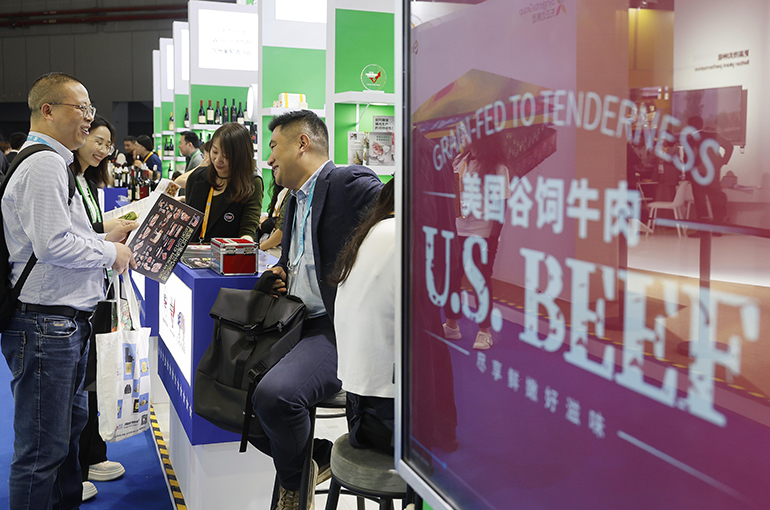Select Language:
(U.S.) September 10 — For American companies operating in China, the outlook over the next five years appears somewhat uncertain. While the regulatory environment is gradually improving, overall confidence is waning due to ongoing geopolitical tensions and tariffs, which are fueling significant uncertainty, according to a new survey.
Approximately 48% of the 254 firms surveyed by the American Chamber of Commerce in Shanghai reported that China’s regulatory framework is transparent, a rise from 35% the previous year. Additionally, nearly double the percentage now believe the country will further open up its markets, reaching 41%. These findings are part of the organization’s annual China Business Report released yesterday.
Furthermore, about 34% noted that Chinese policies and regulations favoring foreign businesses have seen improvements recently, an increase from 30% previously.
Despite these positive signs, only 41% of respondents are optimistic about doing business in China over the next five years, marking a decrease from 47% in the previous year — the fourth consecutive decline. Meanwhile, around 37% hold pessimistic or somewhat pessimistic views.
“Government efforts to enhance the regulatory environment have been acknowledged, but they are overshadowed by ongoing U.S.-China trade conflicts,” said a representative from the American Chamber of Commerce in Shanghai.
Trade Challenges
Trade tensions remain the most significant concern, with about 64% of respondents expecting new tariffs to impact their annual revenue this year. Only 45% currently anticipate growth in income for 2023, a record low.
Manufacturers are especially affected; 74% predict a decline in revenue due to tariffs. Among sectors, chemicals producers are hit hardest at 88%, due to their heavy dependence on global supply chains and critical materials subject to export controls. Logistics companies also face substantial impacts, with 83% experiencing disruptions as businesses adapt sourcing and manufacturing strategies to the shifting trade environment.
On a more positive note, approximately 71% reported profits last year, an improvement from a record low of 66% in 2023, and 57% saw rising revenues.
This survey was conducted between mid-May and June, capturing sentiments shortly after tariffs were increased in April, including a 34% duty on Chinese goods. The effects are particularly severe for companies with integrated supply chains across both countries, facing pressures from both sides.
“If you import inputs from the U.S. significantly, you’ll be affected by countermeasures on the Chinese side. Conversely, exporting to the U.S. exposes you to high tariffs,” explained a representative from the American Chamber of Commerce in Shanghai. “It’s a two-way problem.”
Changing Investment Trends
The ongoing trade uncertainties are also influencing U.S. firms’ investment plans in China, with decisions increasingly driven by geopolitics rather than local market conditions.
Among those reducing investment, 63% cited “uncertainty about U.S.-China trade policies and broader commercial relations” as a key concern, up from 53% a year earlier. This cautious approach has resulted in a record-high 26% of companies decreasing their investments in China last year, with 25% planning to do so this year. Additionally, 47% have already redirected planned investments to other regions, with Southeast Asia being the most popular destination.
Beyond tariffs, U.S. businesses also face intensified competition from increasingly capable Chinese companies. About 63% identified competition from local firms as their second-biggest operational challenge, after U.S.-China trade tensions. Moreover, advancements in artificial intelligence are reshaping competitive dynamics, with roughly 41% stating that Chinese competitors are ahead in adopting AI technologies.
Calls for Policy Stability
Despite these hurdles, many U.S. companies still see China as an important strategic market. Nearly half urge the U.S. government to lift all tariffs on Chinese goods, while 42% want China to eliminate retaliatory tariffs on U.S. imports.
The business community warns that further tariff increases could be damaging. About 69% of firms expect negative effects if the U.S. revokes China’s status under the Generalized System of Preferences, with manufacturers feeling the most impact.
“While some companies are exploring alternative supply chains to boost diversification and resilience, China remains a vital part of their global strategy,” said a representative from PwC China.







